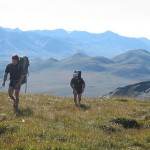May 10 marked the season (and also the series) finale of Fox’s Touch, a show I’ve followed since its premiere last spring. Touch followed widower Martin Bohm (Kiefer Sutherland) as he attempted to develop a relationship with his seemingly autistic son Jake (David Mazouz), who is non-verbal but can comprehend patterns in numerical sequences. The show’s first season was largely episodic: each week, Jake would relay a number to Martin, who somehow had to learn its importance in order to help a stranger for whom those numbers were significant. The numbers’ significance was never immediately clear and the individuals who played roles in the overall resolution were often in far-flung corners of the world.
Beginning with the first season’s finale and continuing into this season, Touch developed a more cohesive pattern, as Martin learned more about other people with abilities similar to Jake’s, which brought him into contact with Lucy (Maria Bello), a single mother desperately searching for her own gifted daughter, Amelia (Saxon Sharbino). In season two, Martin and Lucy learned of a vast conspiracy by the devious AsterCorp, which seeks to exploit such mathematic savants, while they also try to avoid a rogue (Saïd Taghmaoui) who feels duty-bound to kill these 36 “righteous ones.”
Touch bears many similarities to creator Tim Kring’s earlier, more fantastic show Heroes: similar cinematography, score, and technical aspects aside, both shows focus on individuals with extraordinary abilities. The series improved in its second season with the increased emphasis on the search for the elusive 36 and the need to protect them; the conspiratorial elements brought a coherence that was lacking in season one, where the biggest ongoing plotline was a tedious custody battle over Jake that may have been the series’ most unrealistic aspect. Even in its second season, Touch was not without its flaws. Jake’s only lines in any given hour bracket each episode, and they are generally cheesy expositions of pseudo-scientific mysticism about patterns manifest in nature. Unsurprisingly, they sound quite similar to the monologues that Mohinder Suresh would deliver in Heroes.
If Kring’s justification for his characters’ intersecting lives rang hollow, his underlying emphasis may have been biblically sound. “No man is an island, entire of itself,” the priest-poet John Donne famously wrote in a meditation on death. “Every man is a piece of the continent, a part of the main. If a clod be washed away by the sea, Europe is the less, as well as if a promontory were, as well as if a manor of thy friend’s or of thine own were: any man’s death diminishes me, because I am involved in mankind…” In saying this, Donne echoes the sentiments of Paul when he presents the Gospel to the Athenian philosophers in Acts 17.
In Jewish settings, Paul has emphasized God’s particular role in Hebrew history (e.g., Acts 13:13-52, 17:1-15). Among the Greeks, he acknowledges the universal aspects of humanity’s kinship, quoting the pagan poet Aratus to maintain, “We are his [God’s] offspring” (Acts 17:28, NIV). God’s love for the humanity He has created extends beyond ethnic or geographical bounds, a fact manifest not only in His Great Commission to “go and make disciples of all nations” (Matthew 28:19, NIV) but in the Old Testament with its repeated emphasis on caring for the foreigners among the Israelites.
Touch thus emblematizes a Christian truth, one that is becoming increasingly evident in the technological era of human connectivity, and one that Donne recognized when he asserted that he was “a piece of the continent.” Every human death (and life), regardless of region, ought to be meaningful to us, as we, like Donne, are “involved in mankind.” Even if Touch lacks the theological or philosophical focus to suggest any more compelling reason for that connectivity than merely a playing out of numerical patterns, it at least can help to jolt us out of our own regional complacency and remind us of the larger continent. There may always be a temptation to respond to our shrinking planet by withdrawing into communities of people who think and/or look like us. Touch asserts that such avoidance will never change our interdependence on one another. The Bible agrees, and reminds us further that our own interdependence comes from the God upon whom we all must depend.











